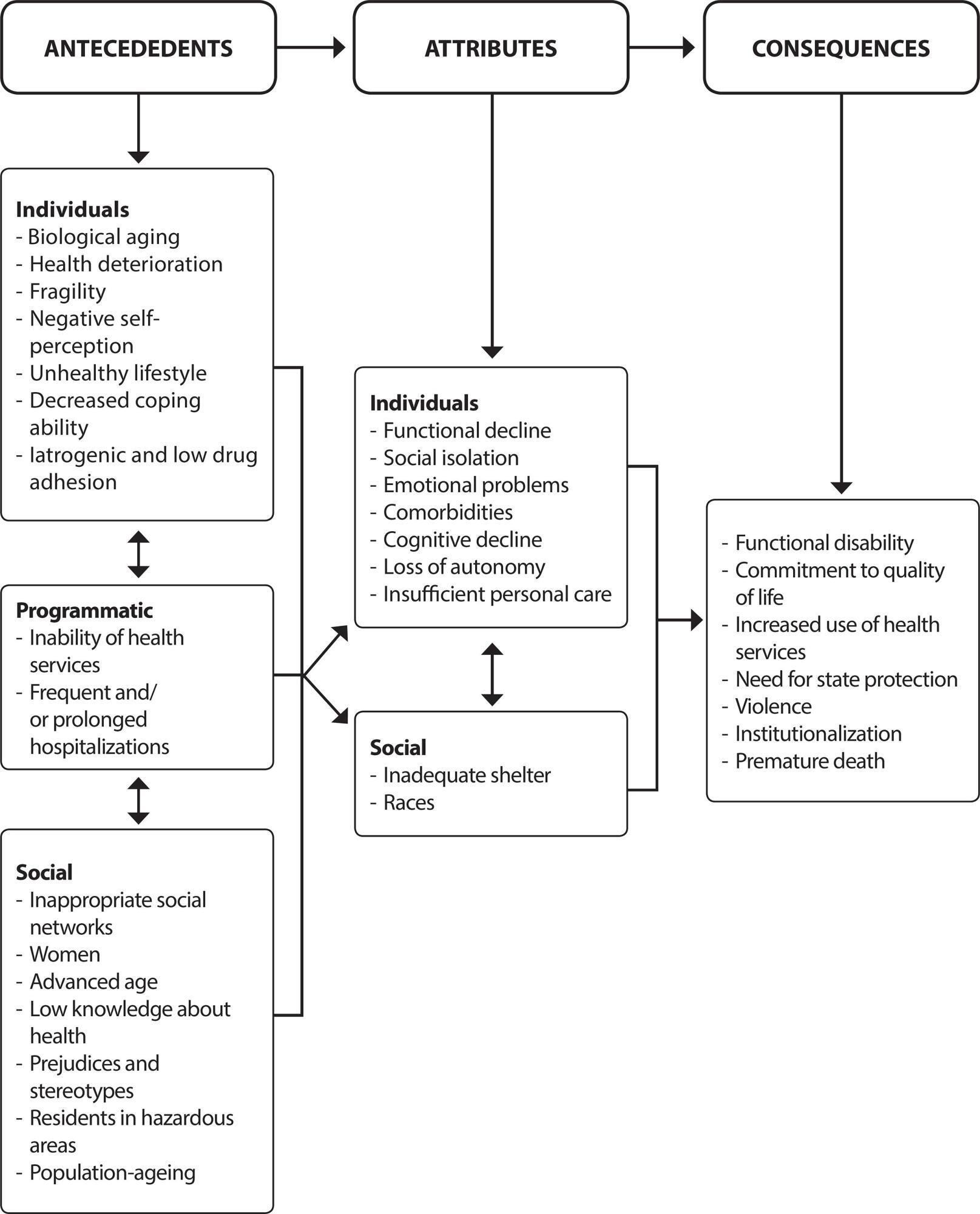-
REVIEW
Research methodology for nursing and health: a book review
Revista Brasileira de Enfermagem. 2016;69(5):1000-1001
01-01-2016
Abstract
REVIEWResearch methodology for nursing and health: a book review
Revista Brasileira de Enfermagem. 2016;69(5):1000-1001
01-01-2016DOI 10.1590/0034-7167-2015-0135
Views0For those interested in nursing and health, the book entitled “Research methodology for nursing and health: from theory to practice”() was released in October 2015, at the 67th Brazilian Congress of Nursing, sponsored by National ABEn. The interest emerged from two organizers: Dr. Maria Ribeiro Lacerda (UFPR) and Dr. Regina Gema Santini Costerano (UNIFRA). Forty-seven […]See more -
REFLECTION
Violence in the workplace in Nursing: consequences overview
Revista Brasileira de Enfermagem. 2016;69(5):996-999
01-01-2016
Abstract
REFLECTIONViolence in the workplace in Nursing: consequences overview
Revista Brasileira de Enfermagem. 2016;69(5):996-999
01-01-2016DOI 10.1590/0034-7167-2015-0133
Views0See moreABSTRACT
Objective:
to reflect on the consequences of workplace violence experienced by nursing professionals.
Methods:
this is a reflection paper based on recent publications related to the subject, particularly researches carried out in Brazil and in other countries.
Results:
exposure to workplace violence has been associated with health problems in nursing professionals, which may be physical damage, emotional manifestations, and psychic disorders. It also affects the employee performance, his or her family and social interactions.
Conclusion:
this phenomenon is potentially noxious and costly, for it leads to suffering, illness, absence from work, and even death. This reflection calls attention moreover to the importance of a safe and adequate health care work environment.
-
REFLECTION
Construcción de la enfermera de práctica avanzada en Catalunya (España)
Revista Brasileira de Enfermagem. 2016;69(5):991-995
01-01-2016
Abstract
REFLECTIONConstrucción de la enfermera de práctica avanzada en Catalunya (España)
Revista Brasileira de Enfermagem. 2016;69(5):991-995
01-01-2016DOI 10.1590/0034-7167.2016690507
Views0RESUMEN
El desarrollo de la enfermera de práctica avanzada (EPA) ha supuesto un reto para las enfermeras en países como EE.UU., Canadá, Gran Bretaña y Australia, entre otros, y desde hace escasos años está siendo considerada en Catalunya y España como un sistema para desarrollar nuevos roles que aporten eficacia y eficiencia al sistema sanitario. El presente artículo pretende conceptualizar la EPA y los modelos de referencia así como contextualizar y reflexionar sobre la EPA en Catalunya, desde el punto de vista de formación y de la implantación de los denominados nuevos roles de enfermería, asimilándolos a la práctica avanzada.
Keywords:Competencia ClínicaEnfermeríaEnfermería de Práctica AvanzadaPráctica ProfesionalRol de la EnfermeraSee more -
REFLECTION
Developing the Advanced Practice Nurse in Catalonia
Revista Brasileira de Enfermagem. 2016;69(5):991-995
01-01-2016
Abstract
REFLECTIONDeveloping the Advanced Practice Nurse in Catalonia
Revista Brasileira de Enfermagem. 2016;69(5):991-995
01-01-2016DOI 10.1590/0034-7167.2016690507
Views0See moreABSTRACT
The development of advanced practice nurses (APN) has proved a challenge for nurses in countries such as the USA, Canada, Great Britain, and Australia among others. It is only in recent years that the system has been considered in Catalonia and Spain as a way to develop new roles to bring effectiveness and efficiency to the health system. From the standpoint of training and implementation of the above-mentioned new nursing roles, the following article aims to conceptualise APN and its reference models, as well as to contextualise and reflect on APN in Catalonia in order to assimilate them into advanced practice.
-
EXPERIENCE REPORT
International academic mobility in nursing education: an experience report
Revista Brasileira de Enfermagem. 2016;69(5):986-990
01-01-2016
Abstract
EXPERIENCE REPORTInternational academic mobility in nursing education: an experience report
Revista Brasileira de Enfermagem. 2016;69(5):986-990
01-01-2016DOI 10.1590/0034-7167-2015-0128
Views0See moreABSTRACT
Objective:
report the experience of international academic mobility in Ireland through the program Science Without Borders during undergraduate education in nursing.
Method:
a report of experience presented in chronological order, with a descriptive nature.
Results:
the opportunity to know and be able to discuss questions regarding health and nursing in Ireland allowed the review of concepts and a more reflective perspective regarding nursing practices. Additionally, the exchange promoted personal strengthening regarding the confrontation and solution of problems, development of technical and scientific abilities, improvement of linguistic competences and construction of personality, independence and maturity.
Conclusion:
regarding such constructive and enriching experience that this mobility provides to students, to the governing authorities, to the population and to Brazilian nursing, sharing this experience is expected to serve as encouragement for those who search for new horizons, with the objective of adding knowledge for their personal and professional life.
-
EXPERIENCE REPORT
Online training for health professionals in three regions of Brazil
Revista Brasileira de Enfermagem. 2016;69(5):981-985
01-01-2016
Abstract
EXPERIENCE REPORTOnline training for health professionals in three regions of Brazil
Revista Brasileira de Enfermagem. 2016;69(5):981-985
01-01-2016DOI 10.1590/0034-7167.2016690506
Views0See moreABSTRACT
Objective:
to describe online training experience aimed at professionals working in the public health service in 27 Neonatal and Pediatric Intensive Care Units, and to reflect concerning the training process and possible improvements in this process.
Method:
this is an experience report study about the online training with multidisciplinary content, planned from the situational diagnosis of 27 institutions. The training target set was 10 participants per institution and per module, including the following topics: Indicators of Quality as a Management Tool, Hand Hygiene, Patient Safety, Intravenous Therapy and Patients’ Chart Record.
Results:
a total of 2,071 active students in the modules, with 1,046 approved. The mean of 76 students per module exceeded the target set.
Conclusion:
experience has shown that online training is comprehensive as a potential tool for the professional technical development and digital inclusion. The online learning system becomes weakened if participants are unaware of the technological resources.
-
REVIEW
Technologies in intensive care: causes of adverse events and implications to nursing
Revista Brasileira de Enfermagem. 2016;69(5):972-980
01-01-2016
Abstract
REVIEWTechnologies in intensive care: causes of adverse events and implications to nursing
Revista Brasileira de Enfermagem. 2016;69(5):972-980
01-01-2016DOI 10.1590/0034-7167.2016690505
Views0See moreABSTRACT
Objective:
to identify the causes of adverse events affecting clients resulting from the use of equipment in intensive care services; to point out the main recommendations for clinical practice to minimize these events and, then, discuss the implications to nursing care.
Method:
integrative and descriptive review on the SciELO, Medline, LILACS, and PubMed databases. Articles were selected based on the inclusion criteria and the structured instrument was applied.
Results:
altogether, 11 articles were selected where three evidence units were outstanding: Equipment failure; inadequate use of equipment; and team failure. Permanent education of professionals; evaluation of production and availability of equipment; and use of checklists are recommended.
Conclusion:
preventing adverse events related to equipment is one of the nursing responsibilities and requires the establishment of defensive barriers to prevent these.
-
RESEARCH
Leads for potentializing groups in Primary Health Care
Revista Brasileira de Enfermagem. 2016;69(5):964-971
01-01-2016
Abstract
RESEARCHLeads for potentializing groups in Primary Health Care
Revista Brasileira de Enfermagem. 2016;69(5):964-971
01-01-2016DOI 10.1590/0034-7167-2015-0102
Views0ABSTRACT
Objective:
to analyze the aspects that potentialize groups in Primary Health Care according to their coordinators and participants.
Method:
This is a descriptive study with a qualitative approach, conducted with a health promotion group affiliated with a Family Health Unit. The data were collected by means of focus groups with participants and community workers who were submitted to thematic content analysis.
Results:
the analysis gave rise to three thematic categories: The group is our medicine; Healthy living and learning; and Priceless leadership.
Conclusion:
the leads identified during the study were as follows: group organization involves investment in motivation and leadership by the coordinators; production of grouping and cohesion is a result of participants and coordinators meeting together, interspersed with dialog, things said and left unsaid that the subjects expressed in the group dynamic; the sense of belonging guarantees their placement in the group based on the recognition of their knowledge and affective, social and health needs.
Keywords:Group ProcessesGroup StructureHealth PromotionNursing in Community HealthPrimary Health CareSee more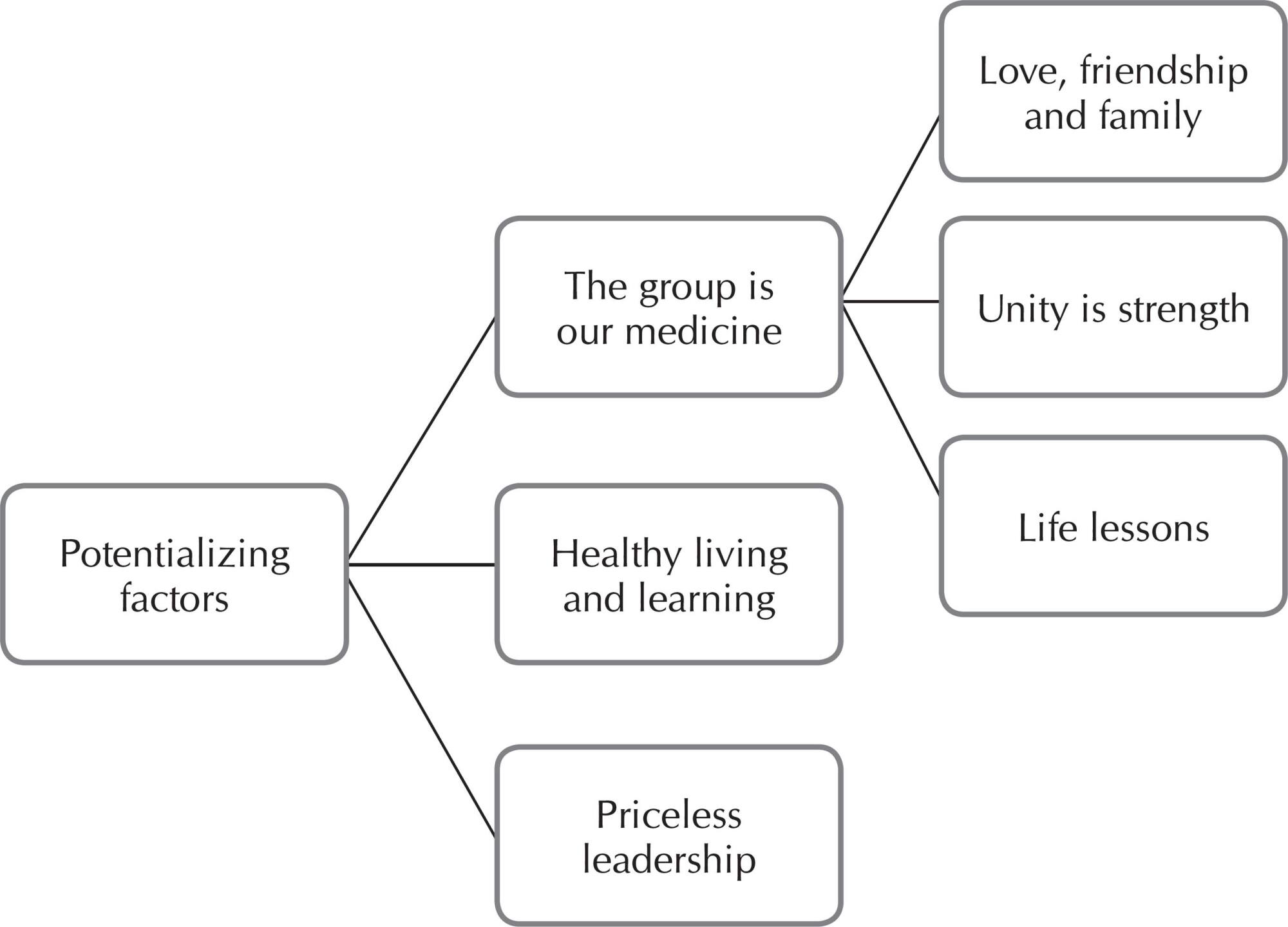
-
Humor intervention in the nurse-patient interaction
Revista Brasileira de Enfermagem. 2019;72(4):1078-1085
08-19-2019
Abstract
Humor intervention in the nurse-patient interaction
Revista Brasileira de Enfermagem. 2019;72(4):1078-1085
08-19-2019DOI 10.1590/0034-7167-2018-0609
Views0ABSTRACT
Objective:
To describe the factors influencing the use of humor in nursing care, its applicability and benefits.
Method:
A scoping review was performed using the Arksey and O’Mally methodology. A search for articles published between 2008 and 2018 was performed using the platforms EBSCO Host, Virtual Health Library and Google Scholar.
Results:
From the initial 465 articles found, 17 were included for final revision. Data allowed to retrieve information on humor definition; its applicability as a nursing intervention; humor as a tool to improve nurse-patient communication and relationship; influence factors; type of humor interventions; humor benefits in health care context and; limitations and precautions of humor intervention.
Conclusion:
The use of humor promotes both communication and human interaction; it promotes well-being; helps deal/cope with difficult and unpleasant situations, reduces tension, discomfort and stress; and strengthens the immune system. This intervention should be used with caution.
Keywords:CommunicationNurse-Patient RelationsNursingPatient Outcome AssessmentWit and Humor as SubjectSee more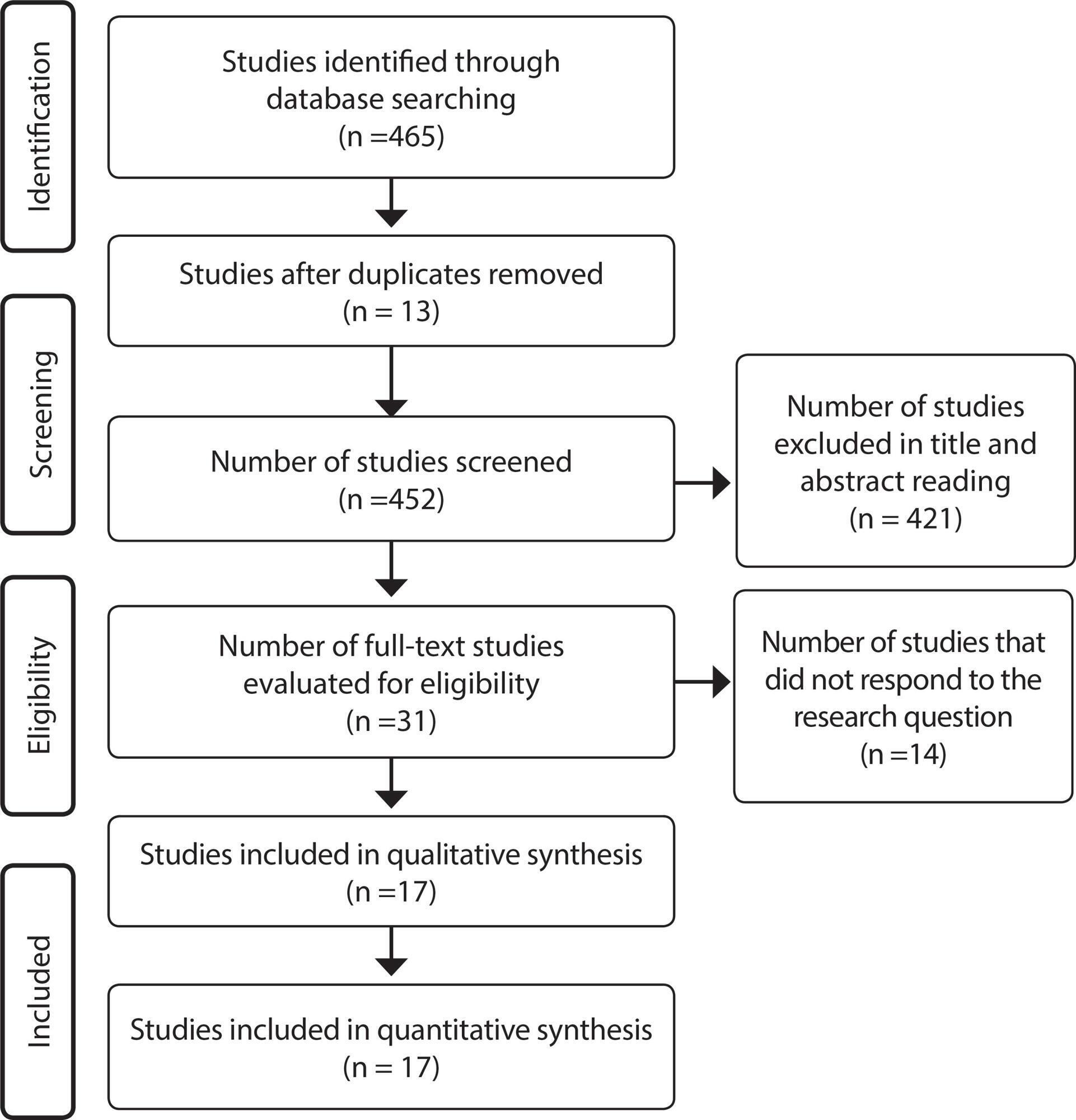
-
ORIGINAL ARTICLE
Workloads and burnout of nursing workers
Revista Brasileira de Enfermagem. 2019;72(6):1435-1441
10-21-2019
Abstract
ORIGINAL ARTICLEWorkloads and burnout of nursing workers
Revista Brasileira de Enfermagem. 2019;72(6):1435-1441
10-21-2019DOI 10.1590/0034-7167-2017-0659
Views0See moreABSTRACT
Objective:
to identify workloads in nursing work and its association with nursing worker burnout.
Method:
a cross-sectional study, including 211 nursing workers from a university hospital, between July and August 2016. For the analysis, the descriptive statistics, Chi-Square Test, Fisher’s Exact Test and Mann Whitney U-Test were used.
Results:
the most evidenced loads were biological. A significant association was found between workloads and workers’ occupation, as well as a significant association between workloads and worker burnout. Burnout caused upper limb pain, neck and lumbar pain, lower limb pain, muscle spasm, lower limb edema, mental fatigue, headache, nervousness, and forgetfulness.
Conclusion:
workloads identification is a subsidy for the promotion of interventions that minimize the burnout generated to the health of the nursing worker.
-
ORIGINAL ARTICLE
Nursing care systematization: perceptions and knowledge of the Brazilian nursing
Revista Brasileira de Enfermagem. 2019;72(6):1547-1553
10-21-2019
Abstract
ORIGINAL ARTICLENursing care systematization: perceptions and knowledge of the Brazilian nursing
Revista Brasileira de Enfermagem. 2019;72(6):1547-1553
10-21-2019DOI 10.1590/0034-7167-2018-0606
Views0See moreABSTRACT
Objective:
to present the perception and knowledge of Brazilian nursing nurses and academics regarding Nursing Care Systematization.
Method:
a descriptive study, carried out in the first half of 2018.
Results:
of the 596 respondents, 86% perceived Nursing Care Systematization as very important, but only 60.9% used it in their care practice. Its use was statistically associated with a higher level of training. Non-utilization was associated with the perception that it is irrelevant and with little knowledge on the Nursing Process, even in the face of recognition of its obligation. Among professionals who wish to learn more about the subject, understanding the application of the process, especially the planning step, is perceived as a necessity.
Conclusion:
the relevance perception of systematization and levels of knowledge of the professional/academic are directly related to the use or not of Nursing Care Systematization principles.
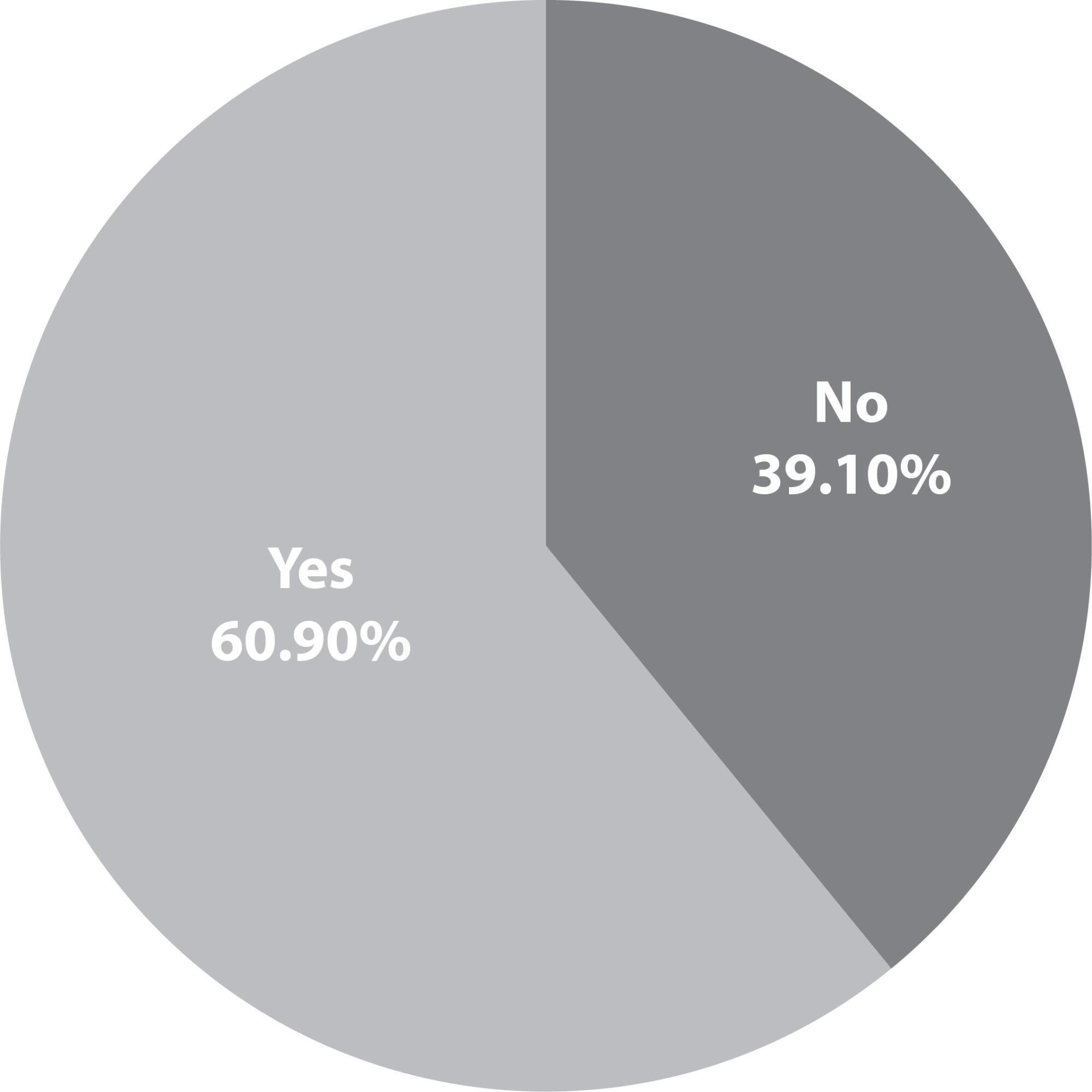
-
Burnout Syndrome and Associated Factors in Intensive Care Unit Nurses
Revista Brasileira de Enfermagem. 2021;74:e20190535
01-20-2021
Abstract
Burnout Syndrome and Associated Factors in Intensive Care Unit Nurses
Revista Brasileira de Enfermagem. 2021;74:e20190535
01-20-2021DOI 10.1590/0034-7167-2019-0535
Views0See moreABSTRACT
Objective:
to estimate prevalence and factors associated with Burnout Syndrome in intensive care nurses in a city in the state of Bahia.
Methods:
a cross-sectional, population-based study carried out with 65 intensive care nurses through a self-administered questionnaire, from July to November 2016, containing sociodemographic data, lifestyle, work characteristics. To define burnout syndrome, the Maslach Burnout Inventory was used.
Results:
Burnout Syndrome prevalence was 53.6%, an association was observed with age, tobacco consumption, alcohol use, weekly night shift hours, employment relationship, having an intensive care specialist title, number of patients on duty, monthly income and considering active or high-strain job.
Conclusion:
the results of this study can contribute to expanding the discussion on stressful working conditions in Intensive Care Units.
-
ORIGINAL ARTICLE
Elderly caregivers of the elderly: frailty, loneliness and depressive symptoms
Revista Brasileira de Enfermagem. 2019;72:88-96
12-05-2019
Abstract
ORIGINAL ARTICLEElderly caregivers of the elderly: frailty, loneliness and depressive symptoms
Revista Brasileira de Enfermagem. 2019;72:88-96
12-05-2019DOI 10.1590/0034-7167-2018-0137
Views0See moreABSTRACT
Objective:
to investigate the association between frailty, loneliness and depressive symptoms of elderly caregivers.
Method:
a cross – sectional study carried out with 341 elderly caregivers enrolled in Family Health Units of a city in the countryside of São Paulo State. The interviews were domiciliary and included questionnaire for characterization of the caregiver, Fried’s frailty phenotype, family APGAR (family functionality), Geriatric Depression Scale (depressive symptoms) and item 3 of the Herth Hope Scale (loneliness). Logistic regression was used to analyze the association between depressive symptoms and solitude (independent variables), and frailty and pre-frailty (dependent variables).
Results:
there was an association between frailty, loneliness and depressive symptoms. Elderly caregivers had increased odds of 158% presenting pre-frailty, and 360% of frailty. Elderly caregivers with depressive symptoms had an increased chance of 242% of presenting fragility.
Conclusion:
elderly and lonely caregivers with depressive symptoms are more likely to be frail and pre-frail.
-
Clinical simulation in nursing education in intensive therapy: an integrative review
Revista Brasileira de Enfermagem. 2019;72(4):1061-1070
08-19-2019
Abstract
Clinical simulation in nursing education in intensive therapy: an integrative review
Revista Brasileira de Enfermagem. 2019;72(4):1061-1070
08-19-2019DOI 10.1590/0034-7167-2018-0217
Views0See moreABSTRACT
Objective:
to analyze the publications on clinical simulation practices for education in Nursing in Intensive Care.
Method:
an integrative review carried out through LILACS, PubMed, Cochrane Library, CINAHL and SciELO databases, of articles published from 2008 to 2017.
Results:
29 articles were selected, of which 76% discuss the use of simulation in continuing education of nursing professionals, while the others describe their use for student education. There is a higher prevalence of studies with a level of evidence 6 (17), with 28 international publications. There was an increase in scientific production, with 16 articles published in the last three years.
Conclusion:
variables after simulation use, such as confidence, communication skills, efficiency in the identification of clinical worsening of patients, development of technical skills, teamwork and clinical decision-making, presented a significant improvement, demonstrating that this tool is effective in qualifying care for critical patients.
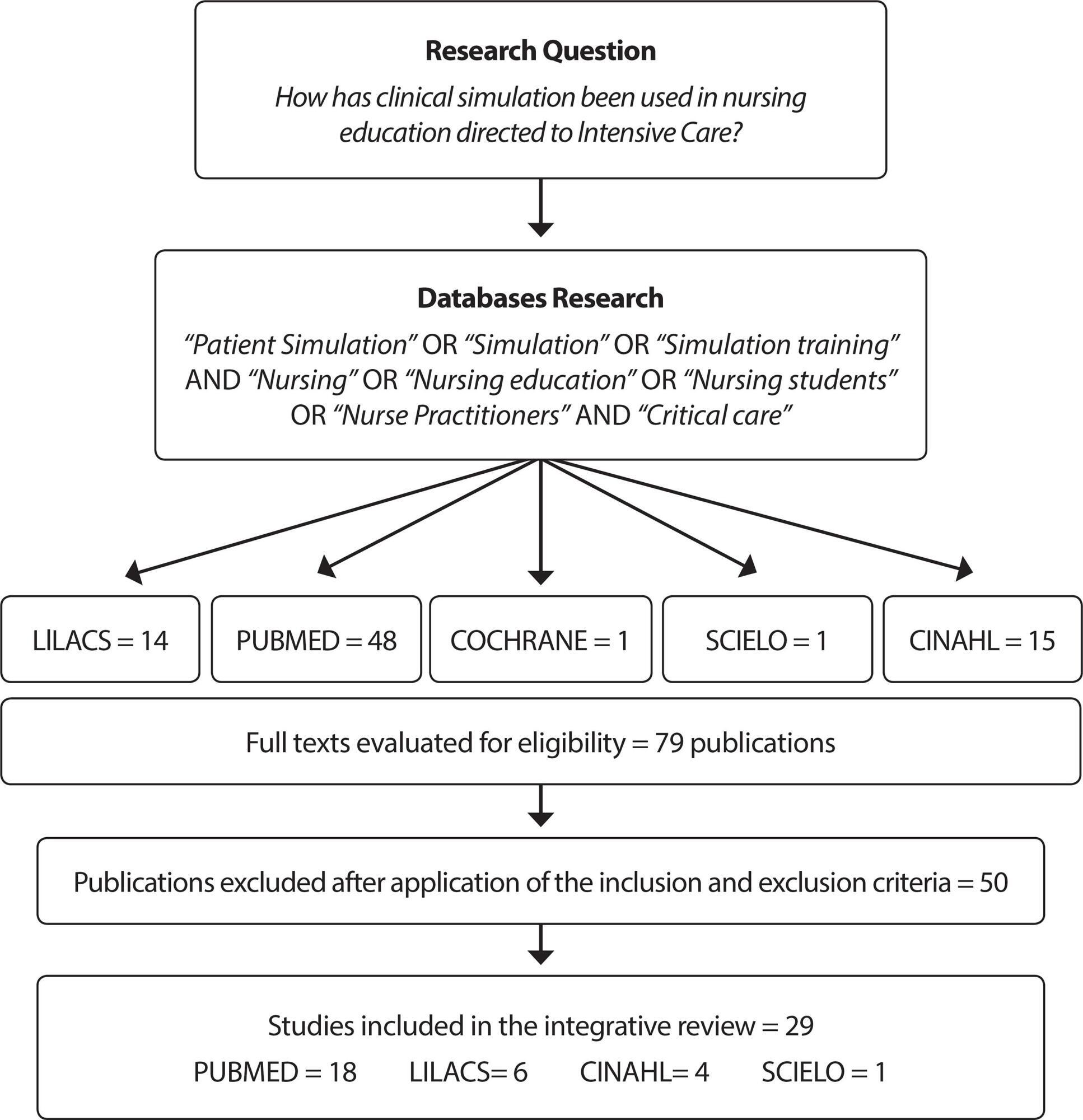
-
ORIGINAL ARTICLE
Usability of a mobile application on diabetic foot self-care
Revista Brasileira de Enfermagem. 2020;73(4):e20180862
06-08-2020
Abstract
ORIGINAL ARTICLEUsability of a mobile application on diabetic foot self-care
Revista Brasileira de Enfermagem. 2020;73(4):e20180862
06-08-2020DOI 10.1590/0034-7167-2018-0862
Views0See moreABSTRACT
Objectives:
to assess the usability of an app prototype for diabetic foot self-care by an end user.
Methods:
a descriptive study that uses heuristic assessment of a hybrid app usability. Fifteen users of an outpatient diabetes care service in a capital of Northeastern Brazil participated in the study during April 2018. The usability measurement tool called Smartphone Usability questionnaiRE was applied.
Results:
the lowest score was 77 and the highest was 112, with an average usability of 96.1 points. Usability was framed in the last two levels, 70 and 8o. Users now strongly agree (level 70) and fully (level 80) with the assessed items, which represents good usability of the apps prototype.
Conclusions:
the final product developed focuses on user needs and requirements, which can ensure usability based on effectiveness, efficiency and satisfaction triad.
Search
Search in:
Nuvem de Tags
Aged (144) Atenção Primária à Saúde (239) COVID-19 (104) Cuidados de Enfermagem (269) Educação em Enfermagem (151) Educação em Saúde (139) Enfermagem (930) Estudos de Validação (131) Health Education (144) Idoso (208) Mental Health (149) Nursing (987) Nursing Care (306) Patient Safety (151) Primary Health Care (284) Qualidade de Vida (104) Quality of Life (106) Saúde Mental (145) Segurança do Paciente (150) Validation Studies (108)




